The Facts About Mould and Renter's Rights
Published on Oct 6, 2020 | Updated - Aug 6, 2024
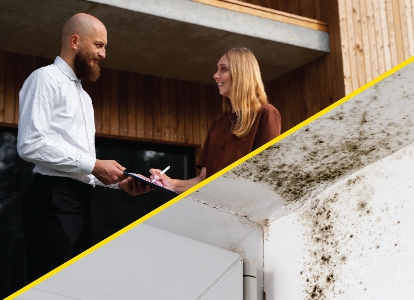
Ask any property manager – a mould infestation is one of the trickier landlord/tenant issues to navigate.
The reasons for why the mould infestation began and why it may be spreading can be varied, so it can be challenging to pinpoint who's responsible.
For a tenant, knowing your rights is the key to saving money and protecting your health in the long run.
How to Deal with Mould in A Rental Property
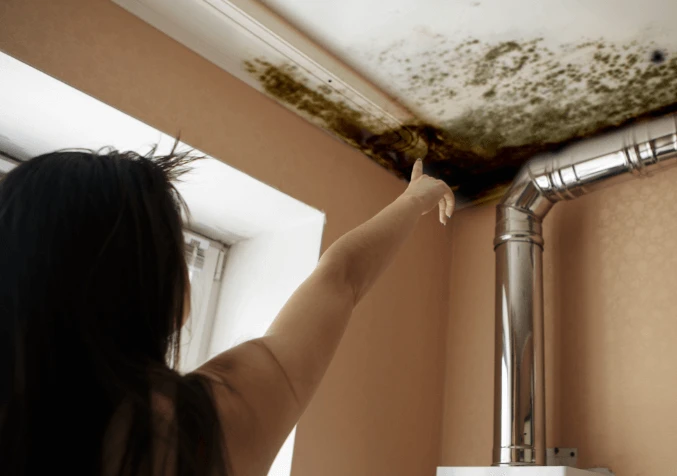
Before we delve into how you can approach a mould problem, we first need to discuss the reason you don't want to share your home with this nasty fungal growth.
What is mould, and why should it be treated seriously?
Mould is a type of fungi that thrives in warm, humid environments. Those black marks you see on the walls are mould waste, and there is likely a much bigger problem hiding behind it.
Mould emits spores into your indoor air that contain mycotoxins, which can cause respiratory reactions and are particularly problematic for people with allergies or asthma.
A severe mould infestation can be detrimental to your health, and everybody has a right to live in a healthy environment.

RECOMMENDED READING
Why is Mould so Bad for You
As mould remediation experts, we can offer you advice on how best to treat the mould in your home and what may be causing your mould and direct you to advice on your rights.
Who's responsible for cleaning mould in a rental?

This helpful article from rent.com.au offers some great advice about what a landlord and tenant's obligations are when it comes to mould.
It is important that you are aware of your rights when you are renting.
The article advises that in Australia, the tenant is responsible for:
- Keeping the property reasonably clean.
- Not intentionally or negligently causing damage.
- Advising the landlord or property manager of damage as soon as possible.
Keep in mind that the tenant may breach their rental agreement in regard to mould if they:
- Got the carpet wet and didn't treat it or dry it out.
- Did not properly ventilate the bathroom and/or laundry by using exhaust fans or opening windows.
- Let scum build up in and around the shower.
- Regularly dry clothes indoors without airing the room afterwards.
Tenancy law states that a landlord must:
- Keep the premises in a reasonable state of repair.
- Meet building, health and safety requirements.
- Ensure repairs are undertaken in a reasonable period of time.
The article also states that a landlord may be breaching the rental agreement if mould develops because they did not attend to maintenance matters reported by the tenant, such as:
- Damp walls from plumbing issues.
- Broken exhaust fans or heating units.
- Leaky roof, broken pipe or flood damage.
This information may vary from state to state, so you'll need to do your research.
Tips for Dealing with Mould in A Rental Property
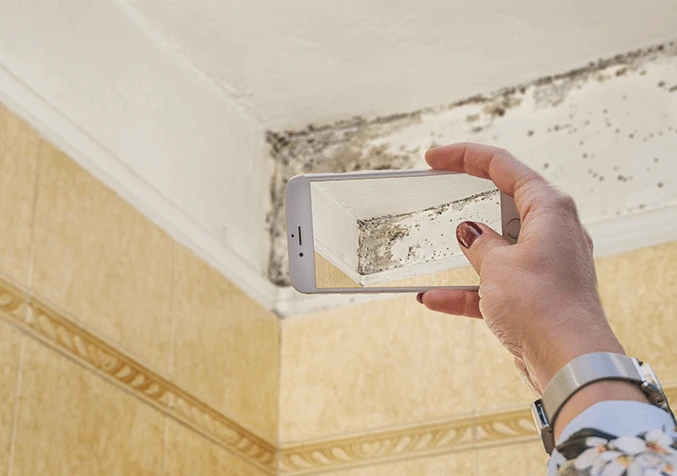
If you haven't yet moved in, ensure that you examine the property for visible mould before moving day, and if present, ensure it is noted in detail on the condition report.
Take plenty of photos of the mould problem and date them.
Keep receipts if you have lost or had to get professionally cleaned any personal items due to mould. This will protect you and potentially assist in getting some of your money back.
What to Do If You Find Mould in Your Rental
Advise the property manager in writing once you notice the mould - this should be done as soon as possible.
Document the process. While you cannot make your landlord test for mould, you can take pictures and document the issue. This is your best protection.
-
Advise the property manager in writing once you notice the mould - this should be done as soon as possible.
-
Document the process. While you cannot make your landlord test for mould, you can take pictures and document the issue. This is your best protection.
-
Hire a professional. It can be difficult to establish why mould is present. Expert mould cleaners like Electrodry can inspect properties for mould and moisture and assist in determining why the mould occurred. You will need to pay for the assessment, however, expert documentation will be handy if the problem needs to be escalated.
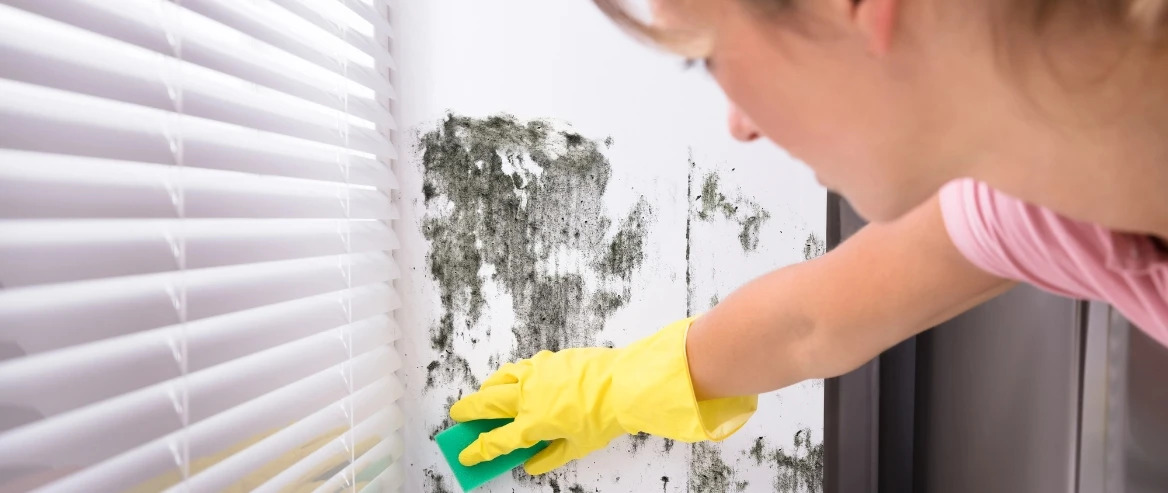
RECOMMENDED READING
The 6 Worst Mould Hotspots in Your Home
How to Prevent Mould in Your Home
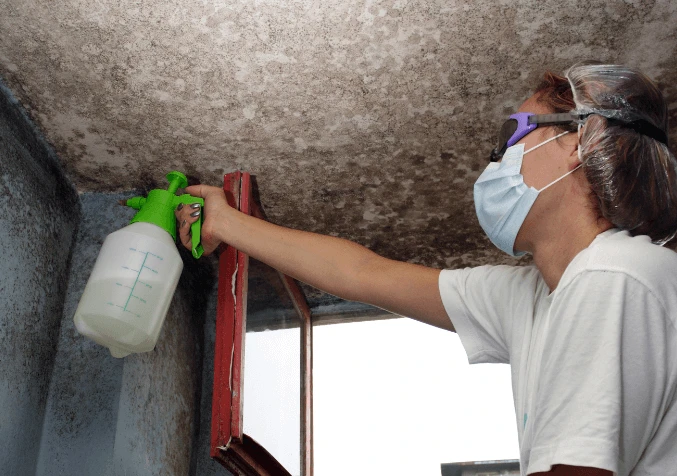
Here is what you can do to prevent mould in the areas of your home most likely affected by infestations. Here are the best 6 tips to prevent mould.
- Always run your exhaust fans and open windows while showering, cooking or using the dryer. Clean your exhaust fans regularly to ensure they don't get clogged up.
- Leave the exhaust fan running for at least 10 minutes after your shower or bath to clear the steam out of the room. If you have a heat lamp, run this for 10 minutes, especially on cooler nights and mornings.
- Open a window when you can and let in the natural light. Use Damp-Rid in smaller areas like cupboards and your pantry. This is an easy and cost-effective way to remove moisture from smaller areas.
- A dehumidifier is a great way to take moisture out of the air to bring the relative humidity below the level required for mould growth. Dehumidifiers typically cost from $350 and are a fantastic investment for your health, and can be taken with you when you move out.
- You can clean smaller mould infestations with a solution of 1.1 white vinegar and water. The anti-fungal properties in white vinegar will treat all types of mould. Just spray onto the affected area, leave for at least 20 minutes and wipe down.
- Keep in mind that for a larger infestation, you may need to bring in professionals. A professional mould remediation specialist can treat your mould issue effectively, tracing mould to its source while providing advice on what may have caused your mould issue in the first place.
What Can a Professional Mould Removal Specialist Do?
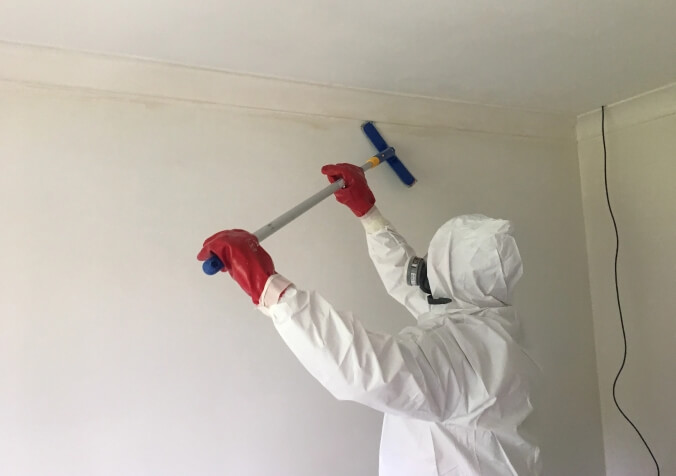
Electrodry's mould removal specialists are Goldmorr qualified to treat mould and its airborne spores effectively.
Technicians are expertly trained to identify how much moisture is in the house and what could be causing the mould. They will then treat the mould with antimicrobial products and treat the spores in the air that could be making you and your family unwell.
Your technician can also discuss the reason for the mould (this is general advice), but we recommend that you seek advice from a builder or plumber.
Professional treatment will give you the peace of mind that the job has been done properly.
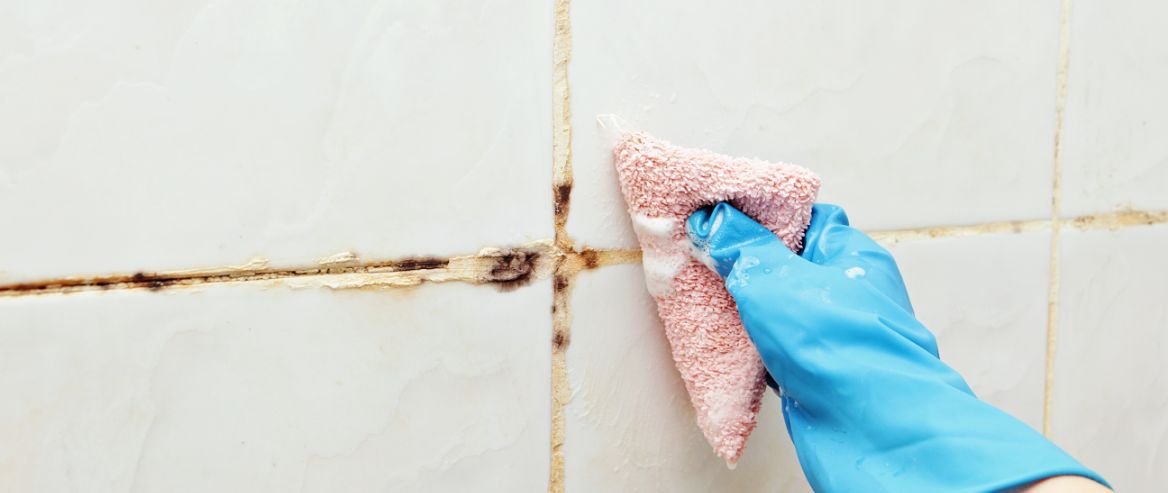
RECOMMENDED READING
The Ultimate Guide to Preventing and Removing Mould in Your Home